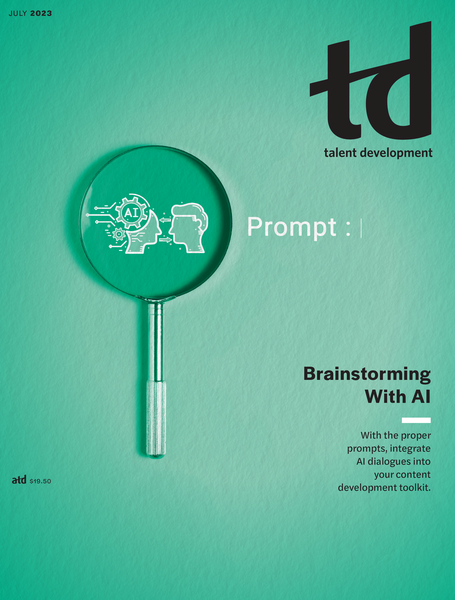TD Magazine Article
Less Money, More Problems
Workers are stressed out about money—and many are looking to their employers for help.
Fri Jun 30 2023

With high inflation, the looming possibility of a recession, and rising interest rates, employees are showing signs of financial stress not seen since the height of the pandemic.
More than 90 percent of workers are feeling the strain, according to BrightPlan's 2023 Wellness Barometer, which is a 20-point increase over the past year. The survey asked 1,400 knowledge workers such as software engineers, financial analysts, and physicians about the primary drivers of stress, how their current financial situation affects their personal and professional lives, and how employers can respond to resultant mental health damage.
Workers are anxious about their lack of sufficient emergency savings, unmanageable debt, and an inability to commit much of their paychecks to retirement savings. To get by, four out of five employees are cutting expenses, while nearly three out of four have turned down an opportunity to take a trip with friends and family or learn a new hobby.
At work, financial stress is causing 33 percent of respondents to pick up extra shifts to boost savings, 27 percent to stay in a job they don't like, and 23 percent to delay retirement. In addition, the survey results reveal, all that stress reduces job productivity, costing US businesses nearly $200 billion.
As a result, holistic well-being tops the chart of challenges facing business leaders in 2023, along with enabling employee growth and building a culture of belonging. Executives are prioritizing offering tools and resources to help employees manage day-to-day finances, grow their savings, and boost their financial literacy.
One action employers can easily take is to improve awareness. One in four workers doesn't know what financial benefits their employer offers. Adoption drops below 50 percent for using benefits such as financial solutions and access to a financial advisor. By instituting benefits-awareness campaigns or beefing up existing efforts, companies can unravel the disconnect between what employees want and what leaders feel they're offering.
A less straightforward problem is how to create an organizational culture in which leaders and employees have open and safe conversations around the effect of finances on mental health. According to BrightPlan, reversing declining trust with HR and business leaders starts with addressing gender and racial pay equity in tandem with taking steps to demonstrate greater empathy with their workforce.

